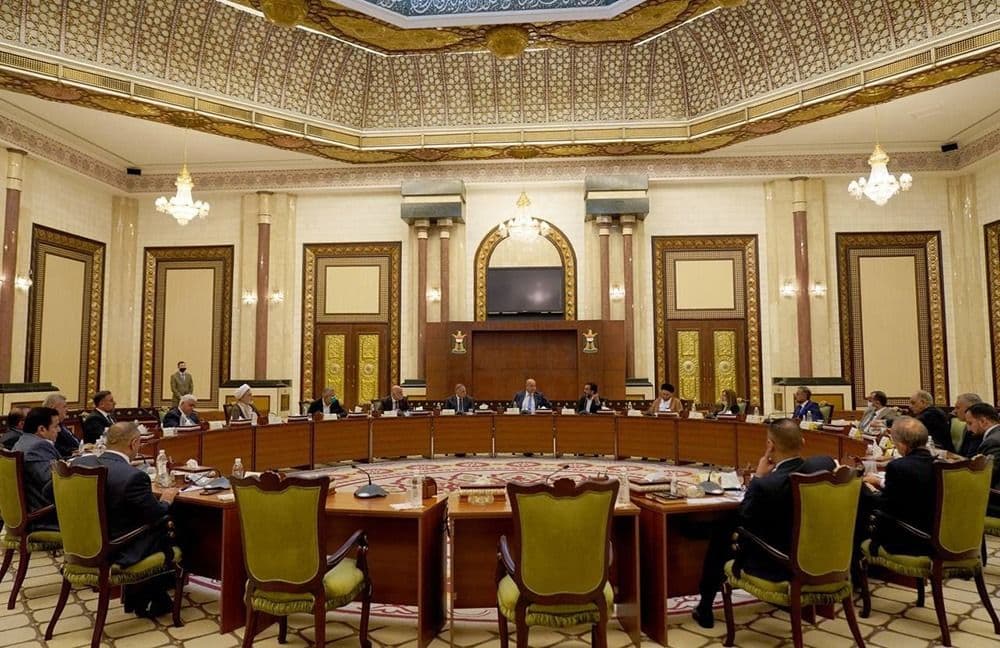Behind the scenes of the next government's horse trading: seven candidates to lead the post-election era

Shafaq News/ The altercations between the winning and losing parties in the Iraqi parliamentary election on media and social media does not necessarily reflect their actual approach to the post-election era. In fact, the leaks from behind the scenes hint at a consensual willingness to share everything: the government, the parliament, and the high-profile positions in the state.
The results of the parliamentary election held on October 10, 2021, still lack judicial or even international legitimacy, which casts more doubts on the overall uncertainty surrounding it. However, it is almost certain that the next government will be formed by "compromise" or "consensus" Prime Minister-designate and not from the "majority" endorsed by the Sadrist bloc.
Although all political parties are reluctant to publicize what is really being discussed behind closed doors, leaks obtained by Shafaq News agency indicate that more than five candidates for prime minister have been proposed, and discussions are underway to determine who will be closest to the position that handles 60% of the Iraqi constitution's authority and serves as the Commander-in-Chief of the Armed Forces.
According to special sources, "all the political parties continue to meet daily in search of a compromise candidate who will be accepted by the Iraqi street, neighboring countries, and regional countries, to serve as a safety valve for these (losing) forces and grant them their privileges without hesitation."
The candidates of the Shiite Forces' Coordination Framework
"The opposition blocs put forward candidates, including former prime ministers Nouri al-Maliki and Haidar al-Abadi. The chances of the former appear to be better as he has the support of the coordination Framework's forces, some Sunni forces in solidarity with the Coordination Framework such as Khamis al-Khanjar's al-Azm Alliance, as well as some other smaller lists," a source told Shafaq News agency.
"Other candidates include the current national security adviser Qassim al-Araji who is backed by the Badr Organization and the Asa'ib Ahl al-Haq movement, former Labor and Social Affairs Minister Mohammed Shiya' al-Sudani, and former Youth and Sports Minister Abdul-Hussein Abtaan," according to the source.
"All of the above are only supported by the Coordination Framework and the Sunni forces allied with them," the source added, "the competition will be mainly between al-Abadi and al-Araji, as they have some kind of acceptance among other political parties. The former successfully ran the country amid the challenges of liberating the cities that ISIS took over, not to mention the economic and other challenges, that his predecessor, Nouri al-Maliki, left."
According to the source, al-Araji has the support of Iraqis, particularly the youth. He also has good connections with the Arab world and most of the surrounding countries, but the last word remains to the results of the election and the choices of the bigger blocs.
Candidates of the winners
"The winning forces, Muqtada al-Sadr’s Sadrist bloc, Mohammed al-Halbousi’s al-Takaddum party, and Masoud Barzani’s Kurdistan’s Democratic Party (K.D.P.), are considering the name of Counter-Terrorism Service's chief Abdul Wahab al-Saadi because the stage requires an experienced military leader," according to another source.
"There are also talks about renewing Mustafa al-Kadhimi's mandate but under new restrictions that maintain the pace of the political process for the next four years. The name of the former Prime Minister Haider al-Abadi was put forward as well," the source continued.
On the other hand, former MP and the Sadrist leading figure argued that naming the PM-designate is an entitlement of the Sadrist movement. "The Sadrist bloc is the largest in the parliament. Therefore, it names the Prime Minister. The President of the Republic assigns and the parliamentary blocs votes."
"The Sadrist movement does not have any red flag on any candidate as long as his agenda does not contradict with the agenda of the movement," he concluded.